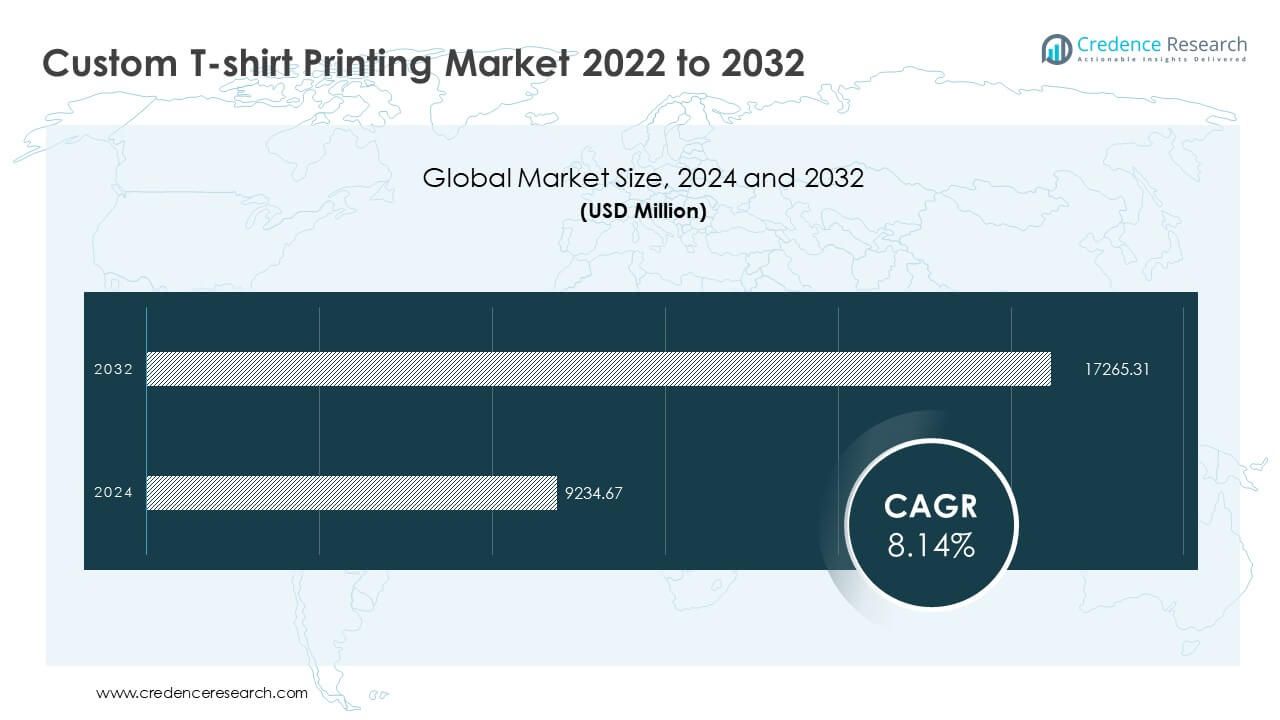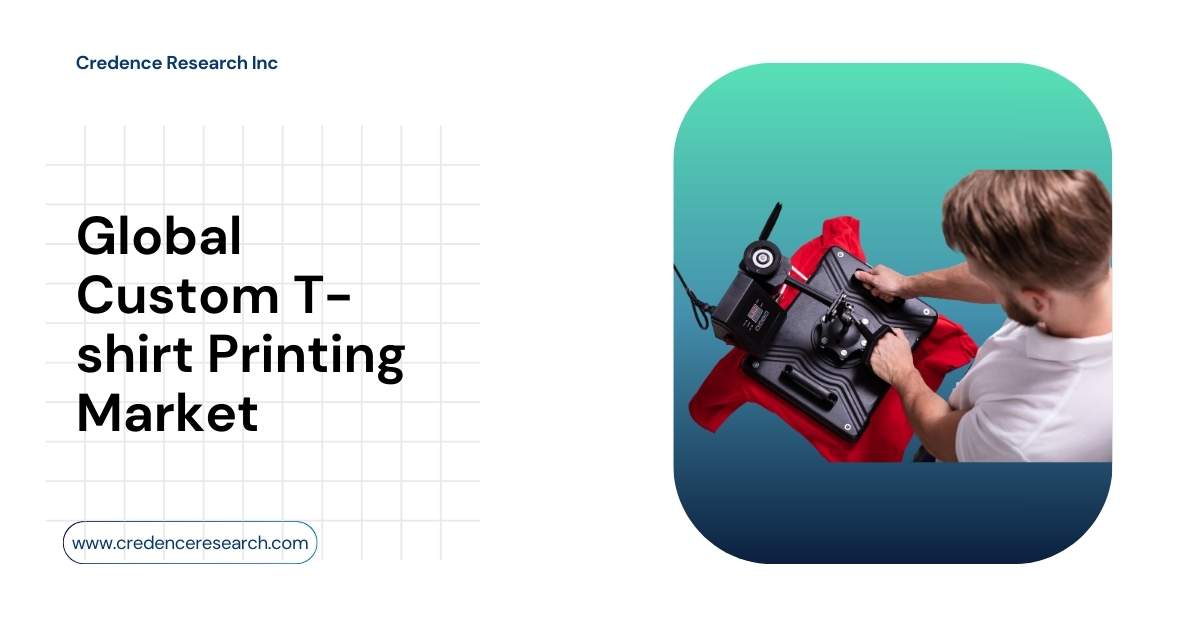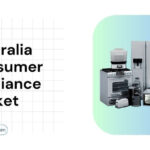According to a new market research report published by Credence Research, titled “Custom T-shirt Printing Market By Printing Technique (Screen Printing, Digital Printing, Plot Printing); By Design (Online, Offline); By End-Use (Commercial, Personal); By Sales Channel (Graphic Designed Shirt, Artwork) – Growth, Share, Opportunities & Competitive Analysis, 2024 – 2032”, the global Custom T-shirt Printing Market is projected to grow from USD 9,234.67 million in 2024 to USD 17,265.31 million by 2032, expanding at a CAGR of 8.14% during the forecast period from 2024 to 2032.
The demand for customized apparel continues to rise due to changing consumer preferences, the increasing influence of online content creators, and the expansion of e-commerce platforms. The industry is undergoing a transition marked by technological improvements, greater access to design platforms, and a broader emphasis on sustainability. The growth trajectory is also supported by rising demand across both individual and commercial use cases, with companies and influencers alike capitalizing on the appeal of personalized, on-demand apparel solutions.
Browse market data Figures spread through 220 + Pages and an in-depth TOC on “Custom T-shirt Printing Market”

Advancements in Printing Technologies
The evolution of digital and automated printing methods has revolutionized the custom T-shirt printing market. Technologies such as Direct-to-Garment (DTG), sublimation printing, and automated screen printing have improved production speed, consistency, and image quality. These methods allow for high-resolution prints with broader color spectrums, greater design flexibility, and fewer setup requirements.
Compared to traditional screen printing, DTG supports lower-volume production at reduced costs, making it ideal for startups and independent designers. Sublimation, which involves the use of heat to transfer dye onto fabric, provides long-lasting and vibrant prints, particularly for polyester-based garments. The use of water-based inks and automated workflows further reduces labor dependency and improves cost-efficiency. These technologies also minimize material waste and offer shorter lead times, enabling faster order fulfillment.
Such advancements allow businesses to efficiently manage variable demand and produce complex designs without significant overhead. The reduced need for bulk orders is especially attractive for small businesses, limited-edition drops, and personalized gifts. The ability to respond rapidly to trends without holding excess inventory improves agility, leading to higher customer satisfaction and better operational margins.
Rise of Influencer and Merchandise Culture
The increasing cultural relevance of social media influencers, content creators, and independent artists has created new demand for custom apparel. These creators often monetize their online presence through branded merchandise, including limited-edition T-shirts featuring custom graphics, slogans, or artwork. The shift from mass-market fashion to personality-driven microbrands is reshaping consumer expectations.
E-commerce and design tools now make it easier for creators to launch their own merchandise lines without traditional barriers such as bulk purchasing or warehousing. Print-on-demand platforms like Printful and Spreadshirt offer integrated services that manage printing, packaging, and global fulfillment. These services allow influencers to design and sell apparel directly to their audiences without significant upfront investment or logistical complexity.
The preference for direct creator-to-consumer transactions reflects broader shifts in buyer behavior. Consumers increasingly support niche brands that align with their values or interests. In this context, custom T-shirt printing supports personalized identity expression, reinforcing its relevance among younger demographics and online communities. As user-generated content drives viral fashion trends, the demand for bespoke apparel is expected to remain strong.
Additionally, corporations and marketing firms continue to leverage personalized merchandise as part of branding and promotional campaigns. Customized T-shirts serve as tools for event marketing, employee engagement, and customer loyalty programs. The fusion of professional use and creator-driven retail models is helping to widen the market’s scope.
Sustainability Pressures and Eco-Compliance
Despite robust growth, the custom T-shirt printing market faces challenges related to environmental sustainability and compliance. Traditional screen printing techniques use large volumes of water and chemical-based inks, contributing to pollution and resource depletion. As regulatory frameworks tighten and consumer awareness grows, manufacturers face increased pressure to reduce the environmental impact of their operations.
Eco-conscious buyers are demanding transparency and environmentally responsible production. To remain competitive, firms must adopt sustainable practices such as using organic cotton, biodegradable dyes, and low-impact water-based inks. Digital printing methods are more compatible with these requirements, but adoption is uneven across markets, especially in regions with cost-sensitive production ecosystems.
Waste management also presents a concern, particularly in operations that rely on unsold inventory or overproduction. Print-on-demand services mitigate this issue by producing only what is ordered, but legacy manufacturers that rely on bulk printing may struggle to adjust. Sustainable packaging, reduced energy consumption, and carbon offset programs are becoming key differentiators in a market where ethical production is gaining importance.
Brands that delay adopting sustainable practices may lose market access or consumer trust. To meet regulatory and social expectations, manufacturers must invest in R&D, upgrade their equipment, and train staff in new, environmentally responsible methods.
Market Segmentation
By Printing Technique:
- Screen Printing
- Digital Printing
- Plot Printing
By Design:
- Online
- Offline
By End-use:
- Commercial
- Personal
By Sales Channel:
- Graphic Designed Shirt
- Artwork
Key Player Analysis
Several prominent firms operate in the global Custom T-shirt Printing Market, each contributing to technological innovation, distribution expansion, and customer-centric service models. The market is moderately fragmented, with firms competing on pricing, turnaround time, design quality, and eco-credentials.
- CafePress Inc.
- CustomInk, LLC.
- CustomThread
- Printful Inc.
- Spreadshirt
- THEBLUEGECKOPRINTING
- THREADBIRD
- UberPrints, Inc.
- Vistaprint
North America
North America holds the largest share of the global custom T-shirt printing market, contributing nearly 35% of the total revenue in 2024. The region’s lead is attributed to several factors, including high consumer purchasing power, a well-established e-commerce ecosystem, and early adoption of digital printing technologies. The United States dominates the regional market due to the popularity of branded merchandise, influencer-led fashion, and corporate promotional campaigns.
Advanced logistics, quick delivery services, and widespread internet penetration have enabled rapid growth in online custom printing platforms. High levels of smartphone usage further support the adoption of mobile-based design and ordering tools. North America also demonstrates a strong push toward sustainable practices, with businesses investing in green technologies to meet regulatory and consumer expectations.
Emerging sustainability trends are influencing both suppliers and consumers in this region. Initiatives focusing on reducing carbon emissions, eliminating harmful chemicals, and using recycled materials are gaining traction. Many North American manufacturers are also introducing closed-loop production models, which aim to minimize waste and reuse resources.
The region benefits from an active startup ecosystem and significant private investment in fashion technology. These factors support innovation in customer interface design, backend automation, and AI-assisted design recommendations. North America’s dominance is expected to continue throughout the forecast period, driven by demand for both personal and commercial customization.
About Us:
Credence Research is a viable intelligence and market research platform that provides quantitative B2B research to more than 2000 clients worldwide and is built on the Give principle. The company is a market research and consulting firm serving governments, non-legislative associations, non-profit organizations, and various organizations worldwide. We help our clients improve their execution in a lasting way and understand their most imperative objectives.
Contact Us
Credence Research Inc
North America – +1 304 308 1216
Australia – +61 4192 46279
Asia Pacific – +81 5050 50 9250
+64 22 017 0275
India – +91 6232 49 3207
sales@credenceresearch.com
www.credenceresearch.com











